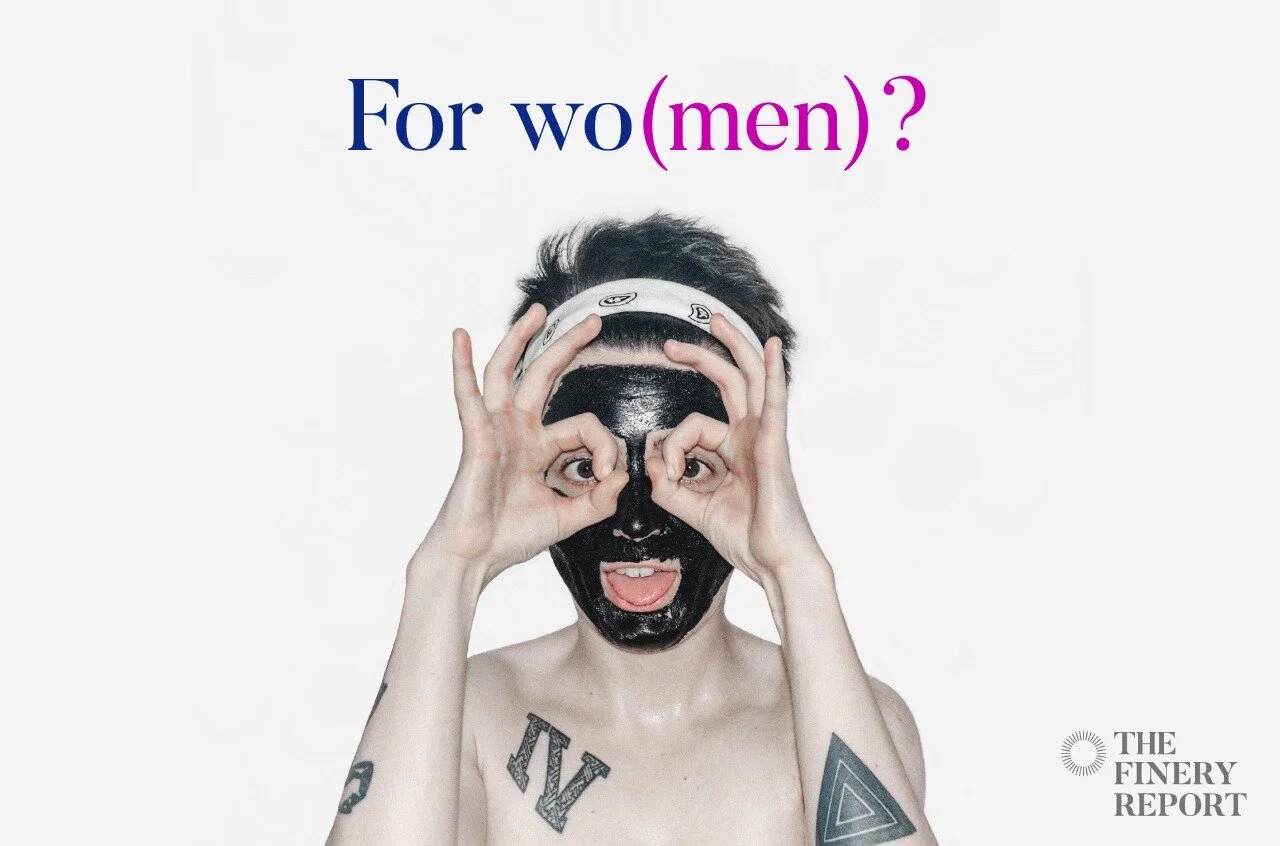Skincare for men: Science-based or marketing ploy?
Read in Indonesian
Read part 1 - The distance between men and skincare
We heard the term “skincare for men” a lot for years now. The term itself is pretty much self-explanatory and it makes it clear that, supposedly, there are skincare products designed specifically for men. By the mere presence of this term in the skincare industry, we could all get the notion that there is a difference between men’s skin to women’s, so men cannot use the pre-existing skincare products and require different treatment.
To find out more about this, we reached out to dr. Listya Paramita, Sp.KK (@drmita.spkk), a dermatologist based in Yogyakarta who is actively vocal to fix the misconceptions about skin health and dermatology, which is very prevalent in Indonesia. Regarding to the difference between women’s and men’s skin, dr. Mita confirmed that there is such a thing.
“The difference lies in the skin thickness. Men’s skin is 20% thicker than women’s,” dr. Mita stated. She also explained that due to this difference, men’s skin has more oil and sweat glands compared to women’s. These glands are also way more active so men could produce twice as much sweat and oil compared to women. Depending on the condition of the skin, men could be more prone to skin issues than the opposite sex, too.
In the small survey that TFR did on this topic, 48.4% of the respondents do have specific skin conditions, such as acne, dryness and aging. 45.2% stated that they don’t have any specific skin condition, while 6.4% said that they are not sure if they have any skin condition or not. From this survey, we can say that hopefully, most of the respondents are at least aware of their own skin condition to be able to choose between “yes” or “no” to answer this question. These are in line with the fact that 90.3% of the respondents are aware of how important a healthy skin is.
However, we do not find those facts to correspond well with the fact that 25.8% of the respondents are not using any skincare. That’s more than a quarter of the total respondents. There seems to be a distinct disconnection, again, between the understanding of how important skin health is and what skincare does to your skin. There are also other possible aspects that could affect men’s decision-making in using skincare, one of them being the product design.
In our survey, we found that the word “simple” were repetitively thrown about to describe the packaging of the skincare product the respondents would be interested in using. Practical, elegant and sturdy design seems to pique their interest in skincare packaging at first glance. When being questioned about the brand, it only makes sense that most respondents (32.3%) came up with an FMCG brand.
The Body Shop was respondents’ second favourite brand at 29%, followed by another FMCG brand in the third place. We could conclude that accessibility is also a big aspect men would consider in choosing a skincare product.
Skincare is indeed important for anyone who wants to keep their skin well and healthy. However, “Caring for your skin is a choice, everything is up to each individual’s preferences,” said dr. Mita. If said individuals feel the need to care for their skin or at the very least want to have a healthy skin, she recommended basic skincare routine, at the very least. According to her, the basics should cover:
Cleansing. There are facewash products to cater all types of skins if you want something simple or other types of cleansers, such as oil-based cleanser and micellar water. Always choose the one that caters to your needs the most!
Moisturising. Never be too afraid to ask what kind of moisturizer is the best for your skin, because moisturiser is supposed to protect your skin against external forces. Choosing the wrong type could render your skin more prone to disturbances.
UV protection. It is best to choose a sunscreen with a broad spectrum that could protect your skin from UVA and UVB with at least 30 SPF. There are many options for sunscreen that doubles as moisturiser too. Depending on the needs, you may be able to use only moisturiser that contains SPF.
And now, we are down to the last and the most crucial question in this article: can men use skincare that is not “for men”?
“Yes, they can,” dr. Mita said, “in its principle, skincare is not gendered.” She added that skincare “for men” exists mostly as part of marketing strategy. As long as the product works well and contributes to the well-being of the skin, there is absolutely nothing wrong for men to use any skincare product that is not “for men.”
Maya, the representative for The Body Shop, shared the same view. “In the last 10 years, we noticed that, especially in Asia, men are still seeking for the manliest products, and that’s how we began to label some of our products ‘for men,’” she explained.
Even though skincare was never gendered in its principle, it only makes sense that the market would cater more to their more responsive demography, which are women. This reality might have driven men away from skincare products in general that a specific categorisation is needed in specific parts of the world.
Now that we know that men are always welcome to use just any skincare they could benefit from, “for men” or not, would they choose accessibility, simplicity and benefits over a label? That’s not a question for us to answer, but if you direct yourself to Daniel Adnan’s Instagram, you will find one who would.













